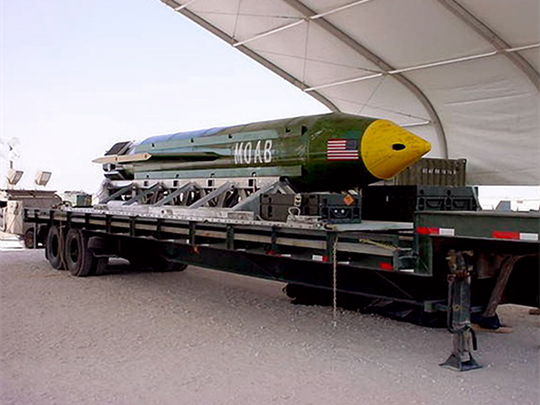WASHINGTON – ISIS-affiliated terrorists in Afghanistan, noted for their brutality in a brutal land, pose the top threat for spectacular attacks in the United States, according to a senior U.S. intelligence official.
The group known as ISIS-K, like al-Qaeda, which plotted the 9/11 terror attacks from Afghanistan, also has designs on striking targets in Western nations, said the U.S. intelligence official, who is not authorized to speak publicly.
ISIS-K has hundreds of fighters and has shown increasing effectiveness in its tactics and recruiting in Afghanistan, said Sen. Jack Reed, D-R.I.), the ranking member of the Armed Services Committee who recently visited Afghanistan.
"It's growing in sophistication and numbers," Reed said.
The making of an American terrorist Hoda Muthana joined ISIS. Now she can’t come back
ISIS bride: Should Hoda Muthana be allowed to return from ISIS for trial in the U.S.? Trump says no.
Inspiring, financing and directing attacks abroad is a key goal. A chief worry: a terrorist recruit, for example, driving a truck through a crowd in the United States, the intelligence official said, citing the type of assault the group aspires to.
The K in ISIS-K stands for Khorasan, the Islamic State's affiliate in Pakistan and Afghanistan, where U.S.-led forces have fought Taliban and al Qaeda militants since 2001. About 14,000 U.S. troops remain in Afghanistan, half of them assigned to counter-terrorism missions, including combating ISIS-K militants.
About 2,400 U.S. troops have been killed in Afghanistan. More than 140,000 Afghan troops, militants and civilians have died in the fight, according to a study by Brown University.
In the last three years, ISIS-K has been emboldened by success in Afghanistan, said the senior intelligence official.
For instance, it mounted six major attacks in the Afghan capital of Kabul in 2016. That grew to 18 attacks in 2017 and 24 in 2018, the official said. The group is on pace to match or exceed that total this year.
ISIS-K has sought recruits among disaffected college graduates in Kabul, the official said. Doing so allows them to tap into their expertise gained in school and their ability to obtain visas and travel the world as terrorist operatives.
U.S.-led counter-terrorism strikes and law enforcement efforts have prevented ISIS-K from attacking targets in the United States, the official said. Gen. Joseph Votel, the recently retired commander of U.S. Central Command, said the group was “not reconcilable” and required eradication.
Preventing 'lone wolf' attacks: Why a seemingly unplanned terrorist attack in Maryland is the hardest kind to prevent
'An unnecessary, dangerous attempt':Trump vetoes resolution to end US support in Yemen
To that end, U.S.-led airstrikes have pounded ISIS-K strongholds in Afghanistan's Nangarhar province, most notably the use in 2017 of the largest conventional bomb in the U.S. arsenal, the Massive Ordnance Air Blast, also known as the Mother of All Bombs. The explosion killed an estimated 96 ISIS-K fighters.
The group, however, has shown its resilience matched by toughness and brutality.
The Massive Ordnance Air Blast, the largest conventional weapon in the U.S. arsenal, was dropped on a Taliban tunnel complex. (Photo: U.S. Air Force)
 |
ISIS-K has lured the hardest of the hard core, he said. Afghanistan allows them the chance to kill their top targets: western troops, a corrupt local government and Taliban fighters who are not sufficiently committed to their cause. Afghanistan's harsh terrain and lack of governance is an ideal environment to train fighters to shoot and communicate, the intelligence official said.
Want news from USA TODAY on WhatsApp?Click this link on your mobile device to get started
The group considers the Taliban, whose harsh rule of Afghanistan ended in 2001 and has mounted an 18-year insurgency, to be too lax in its interpretation of Islam, the official said.
ISIS-K fights the Taliban daily and has seized territory from it. ISIS-K fighters decapitated a local imam, sympathetic but insufficiently devout, and put his head on a pike as a warning to villagers, the official said.
As evidence of their commitment, the official pointed to intelligence gathered over the winter that showed that ISIS-K fighters stranded in mountain passes surviving on a dwindling supply of pine nuts. They preferred starving to profiting from the lucrative trade in opium, he said.

No comments:
Post a Comment